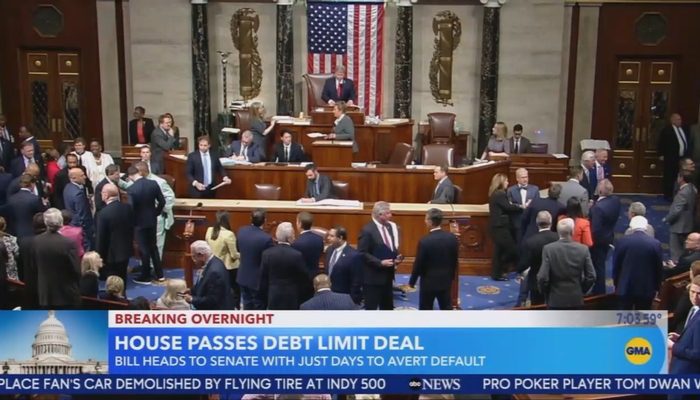**Biden’s Deal Reveals His Weakness and Republicans’ Lack of Winning Strategy**
After months of stubborn refusal, President Joe Biden finally caved this week, cutting a deal with Speaker of the House Kevin McCarthy to raise the debt limit. The compromise includes a meager 1% cap on non-military spending increases, a rollback on IRS funding, and recovery of some unused COVID-19 funds. Quite far from an ideal conservative outcome, this outcome reveals not only Biden’s weak negotiating stance, but also the Republicans’ inability to win big in a situation where they should have held the cards.
The criticism of the deal from conservative circles are all true. As Republican Representative Nancy Mace of South Carolina pointed out on Twitter, despite minor cuts to discretionary spending over the next two years, overall spending still swells to the tune of around $6 trillion more than previous levels. The government has grown massively in recent years, ballooning from just over $4 trillion to $6 trillion in spending from 2019 to 2023 – driven primarily by the COVID-19 crisis.
However, conservative ideals were never in fruition in this negotiation. Biden holds the presidency, and due to former President Donald Trump’s interference in the 2020 Georgia Senate runoffs and the 2022 races, Senator Chuck Schumer remains leader of the Senate. Republicans were never going to score major victories on budgetary matters. A broader point to emphasize is that Republicans failed to achieve significant budgetary wins during their control of both houses of Congress between 2016 and 2018.
To expect to emerge as triumphant given the current political landscape is simply unrealistic. The real driver of America’s national spending addiction sits with entitlement programs such as Social Security, Medicare, and Medicaid, accounting for 62% of federal spending annually. Discretionary outlays, though substantial, represent less than $1 trillion. The budget still exceeds $5 trillion, even if substantial cuts were made in discretionary spending.
The truth is that debating over the budget feels like rearranging deck chairs on the Titanic. By 2053, over 21% of the national budget will be dedicated to debt service alone, with mandatory spending making up 58%. Cutting discretionary spending is not the answer. Yet, touching the true culprits for budgetary bloat and economic stagnation is considered political suicide, due to the wrath of deeply entrenched interest groups.
**Rearranging Deck Chairs on a Sinking Ship**
What is abundantly clear is that politicians are fully aware of the impending doom but choose to kick the can down the road instead. As the iceberg approaches, reelection campaigns focus on minuscule victories and ignoring the big picture. It is full speed ahead toward complete fiscal collapse, and it will take a drastic shift in priorities to change course. Unfortunately for both American citizens and the political establishment, ignoring the real issues will only lead to a much greater crisis when the time runs out.



